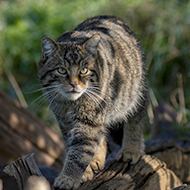Sea ice loss caused unprecedented breeding failure.
Thousands of emperor penguin chicks may have died after regional ice loss caused four breeding colonies to be abandoned before the chicks had fledged, a new study has revealed.
The colonies, in the central and eastern Bellingshausen Sea, west of the Antarctic Peninsula, were among five being monitored via satellite by researchers from the British Antarctic Survey.
Emperor penguin chicks usually fledge during December and January. However, satellite images showed that in the central and eastern Bellingshausen Sea region, there was a 100 per cent loss of sea ice in November 2022.
Four of the colonies were abandoned before the chicks would have been old enough to have developed waterproof feathers.
Although the researchers say it is possible that some chicks may have survived on grounded icebergs, there is a high probability that thousands would have drowned or frozen to death.
Emperor penguins rely on sea ice firmly attached to the shore from April through to January for successful breeding. But in recent years, sea ice levels have declined, with the Antarctic summers of 2021/22 and 2022/23 seeing the lowest levels since records began in 1978.
The colonies studied by the researchers range in size from an average 700 pairs on Rothschild Island to around 3,500 pairs in the colony on Smyley Island. Only the small Rothschild Island colony, which is the furthest north, remained intact, with chicks at that site successfully fledging.
Before 2022, just one of the five colonies being studied by the researches had been recorded as experiencing a total breeding failure.
Dr Peter Fretwell, lead author of the study, said: “We have never seen emperor penguins fail to breed, at this scale, in a single season. The loss of sea ice in this region during the Antarctic summer made it very unlikely that displaced chicks would survive.
“We know that emperor penguins are highly vulnerable in a warming climate - and current scientific evidence suggests that extreme sea ice loss events like this will become more frequent and widespread.”
The study has been published in the journal Communications Earth & Environment.
Image (C) Shutterstock







